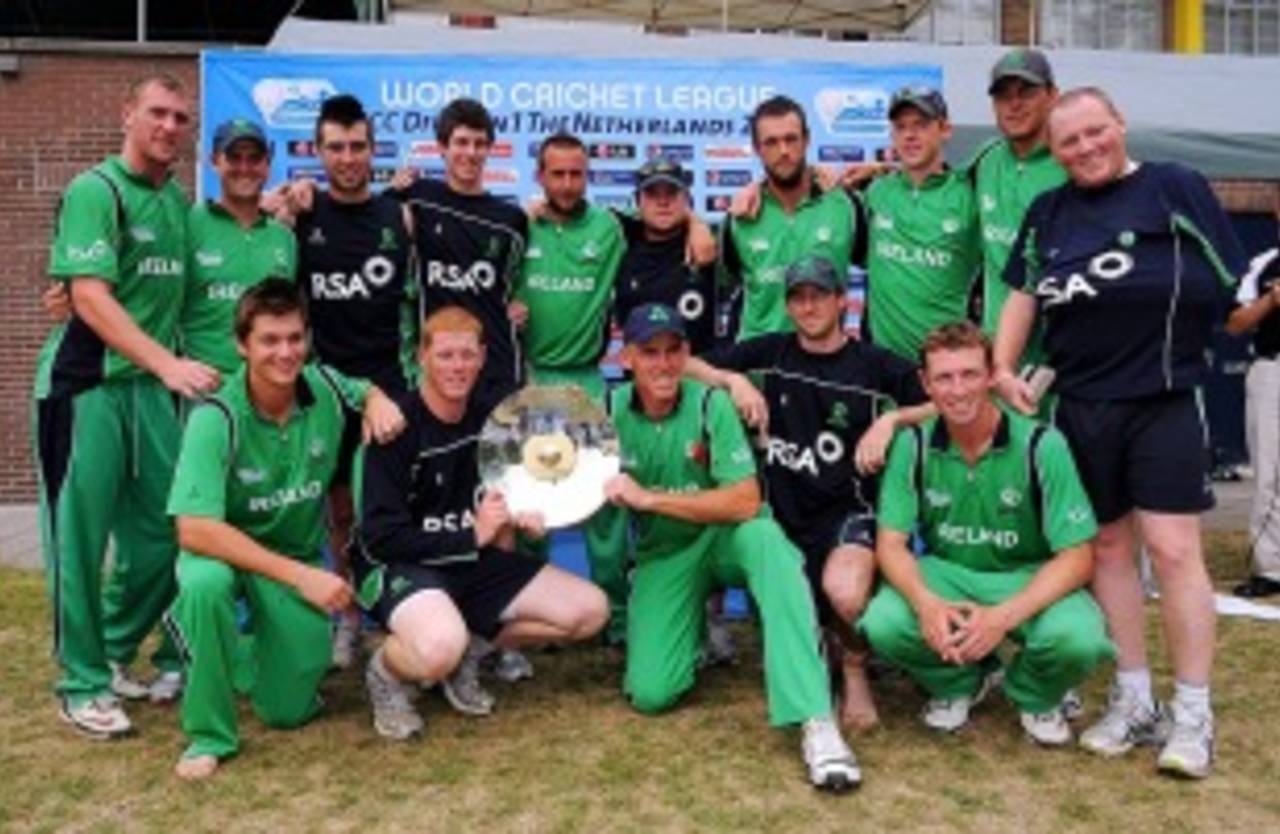Trent Johnston, Ireland's stand-in captain, has said that critics who called Ireland a one-generation side were wrong after his team's unbeaten run to the title in the ICC World Cricket League Division 1 tournament in the Netherlands. Ireland won all five group games, as well as the final against Scotland, despite missing key players such as regular captain William Porterfield, wicketkeeper Niall O'Brien and fast bowler Boyd Rankin, who were playing county cricket in England.
"All those people who talk about the wheel turning, or that Irish cricket is a one-generation side, are very much mistaken and will be proven wrong if they look at the performances the kids have put in over the last 10 days," Johnston said. "It is great to win another trophy that keeps us at the top of Associate level. We had a few speed bumps against Afghanistan in the last 12 months, but it was not (the case) here as we beat Afghanistan pretty convincingly a few days ago with an inexperienced side."
Ireland's six-wicket victory in the final, however, was achieved after a couple of setbacks. Scotland's openers, Fraser Watts and Preston Mommsen, began the match with the highest opening stand of the tournament. "I was certainly not happy to see Scotland reach 141-0 after I had sent them in as we didn't bowl very well at the start. But we persisted and stayed focused which earned us two key wickets," Johnston said. "A couple of silly shots from their senior players later on got us back in the match and in the end we were left chasing 233 instead of anything in excess of 280."
Ireland's bowlers fought back strongly and triggered a collapse during which Scotland lost 10 wickets for 91 runs. Ireland also lost three early wickets during the chase of 233 but were guided to victory by Kevin O'Brien and Andrew White, whose 160-run partnership was the highest of the tournament as well as a record in ODIs between the teams.
"Kevin has matured as a cricketer and is working very hard on his game," Johnston said. "We call White a finisher so I was confident that the two would take us home after we were struggling at 51-3. The two were expected to build a partnership and they did exactly that, and though White couldn't take us over the finish-line, it was an excellent effort by him."
While Scotland were disappointed they couldn't capitalise on their chances in the final, their captain Gordon Drummond said he would have settled for second place at the start of the tournament.
"If you had offered me a second place and four wins out of six matches before the start of the tournament, I would have definitely taken it because we arrived here without a couple of key players and after having finished fifth in South Africa last year," he said. "We were constantly assessing the situation [in the final] but when we reached 141-0, we were targeting 280 and this is what we should have got at the end. Something that we need to learn is to convert good starts into winning scores and kill off the opposition."
